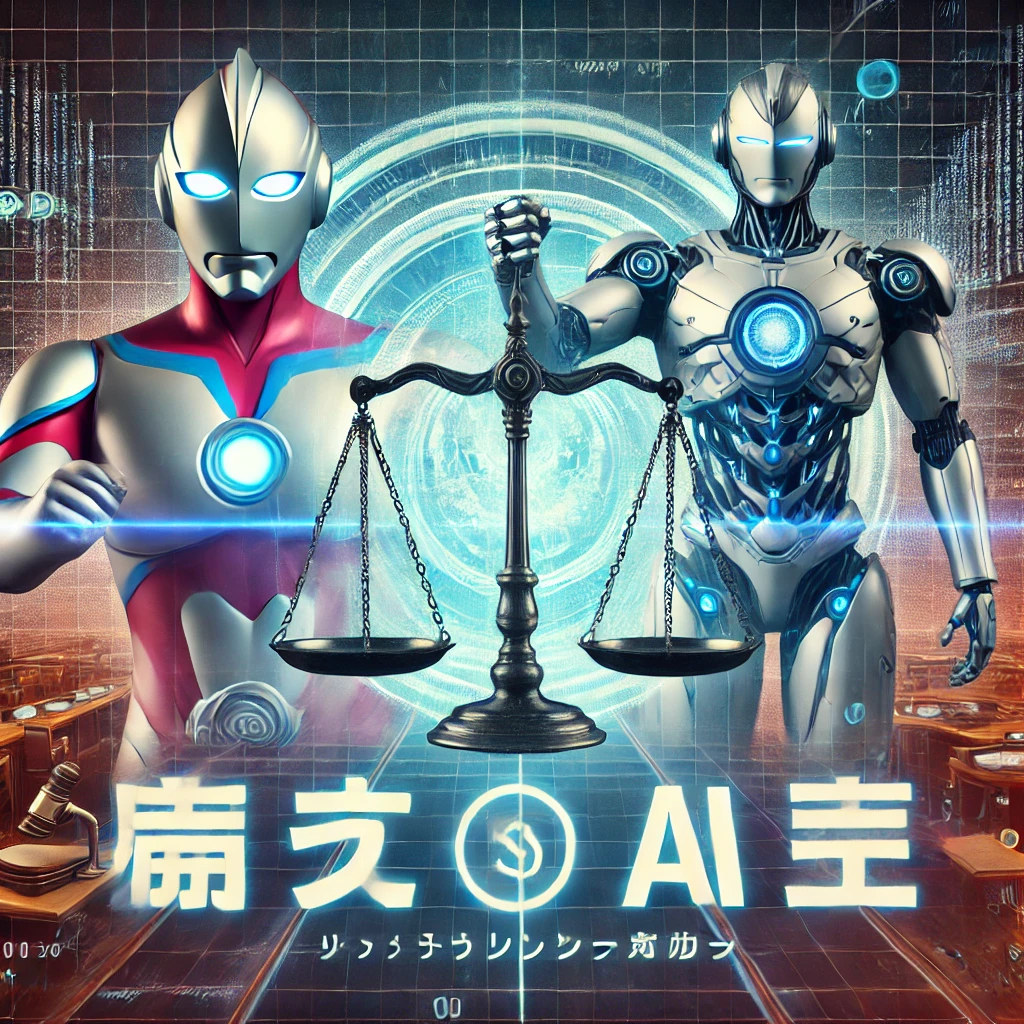Introduction
In recent years, generative artificial intelligence (AI) has rapidly evolved, with its applications continuing to expand. However, alongside this growth, the risk of copyright infringement has also increased. This article examines the issue through the example of a court case in China where generative AI was found to have infringed on copyrights and was ordered to pay damages.
Case Overview
The Guangzhou Internet Court in China recognized that a local business operator, unrelated to the original creators, provided a generative AI service on the internet that created images closely resembling Ultraman Tiga, constituting copyright infringement. The plaintiff, a representative agency licensed by Tsuburaya Productions in China, filed the lawsuit on the grounds that the AI learned and generated Ultraman content without permission. The court ordered the business operator to pay damages of 10,000 yuan (approximately 200,000 yen) and cease the image generation.
Relationship Between Copyright and Generative AI
Generative AI generates new content by learning from vast datasets, which may include copyrighted works. Therefore, whether the content generated by generative AI constitutes copyright infringement is a highly sensitive issue.
Significance of the Court’s Judgment
The court’s judgment in this case clearly recognized copyright infringement by generative AI and ordered specific damages. This judgment has significant implications in the following aspects:
Warning Against the Use of Generative AI
It serves as a reminder to users and businesses of generative AI about the risks of copyright infringement, particularly emphasizing the risks of unauthorized learning of copyrighted works.
Strengthening Copyright Protection
The judicial role in protecting the rights of copyright holders has been clarified. This enables copyright holders to seek appropriate measures against unauthorized use of their works.
Balancing Advanced Technology and Law
The case highlights how the law can respond to the evolution of advanced technologies like generative AI, suggesting that laws need to adapt flexibly alongside technological advancements.
Future Prospects
As generative AI technology continues to evolve, the risk of copyright infringement is expected to increase. Therefore, it is essential to adhere to laws and guidelines and respect the rights of copyright holders when using technology. Additionally, copyright holders themselves need to consider new means of protecting their rights in response to the advancement of AI technology.
Conclusion
The Ultraman case highlights the issue of copyright infringement by generative AI and reaffirms the importance of copyright protection. As technology evolves, the law must appropriately respond. It is crucial to respect the rights of copyright holders and strive for proper use when employing generative AI.
